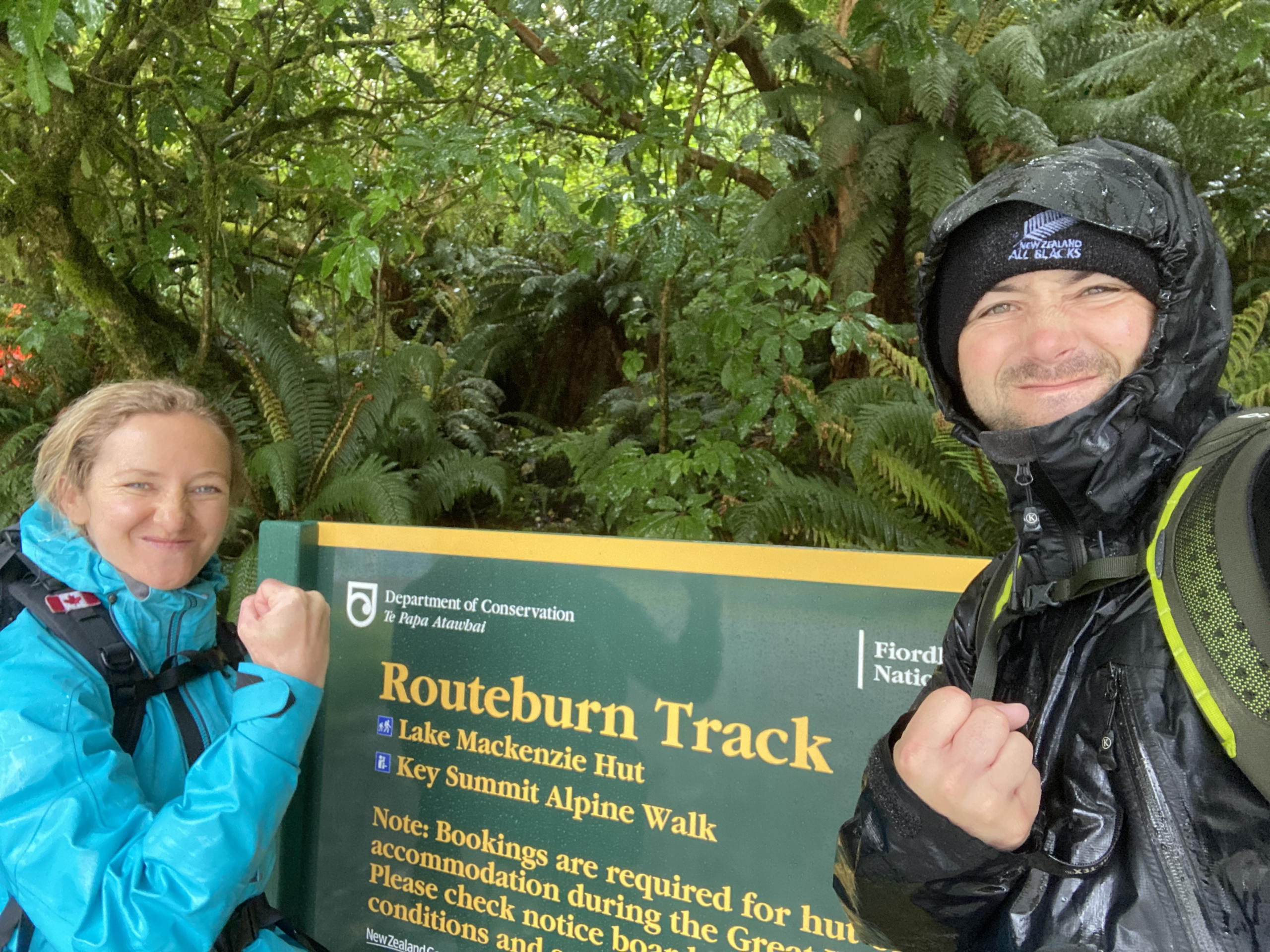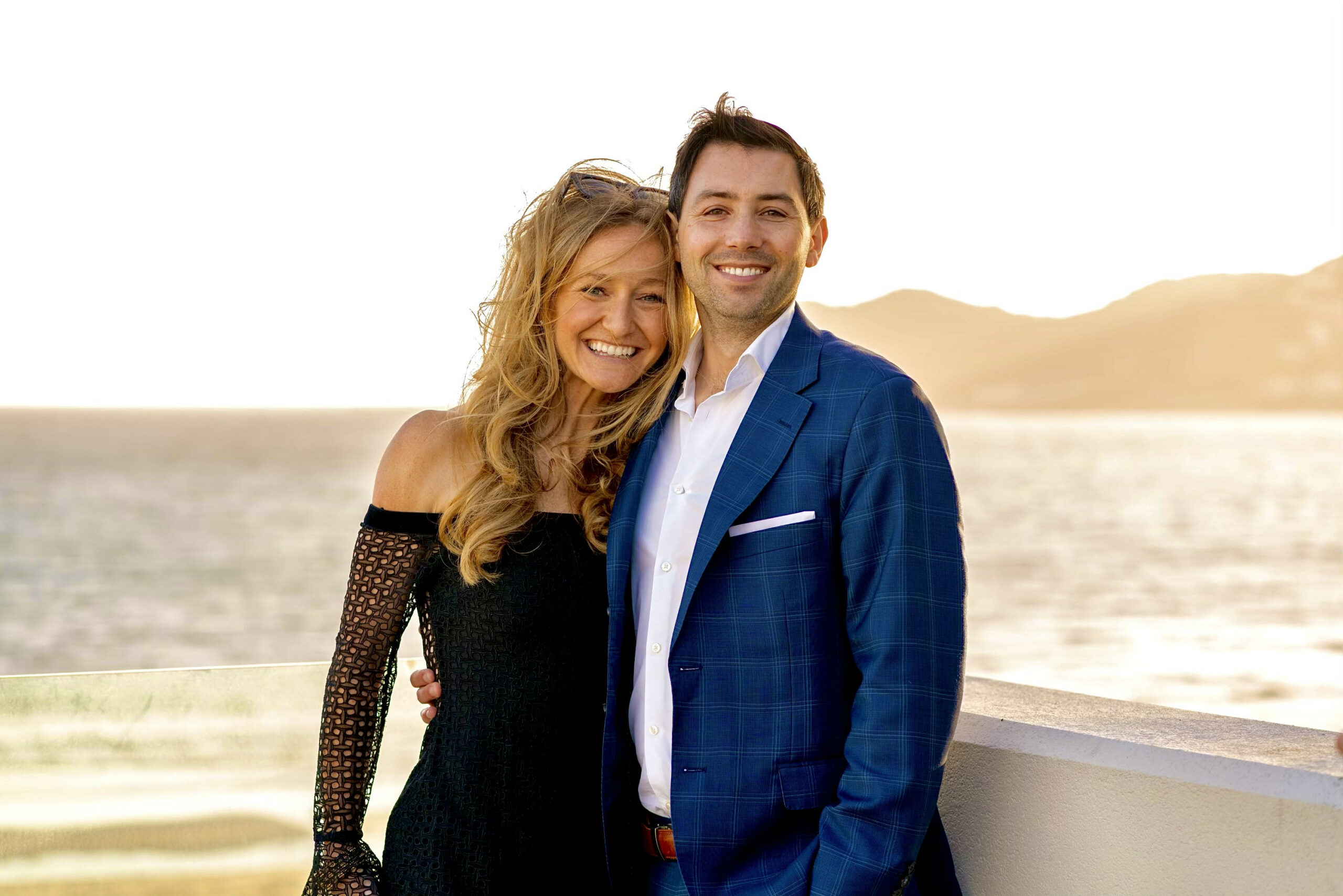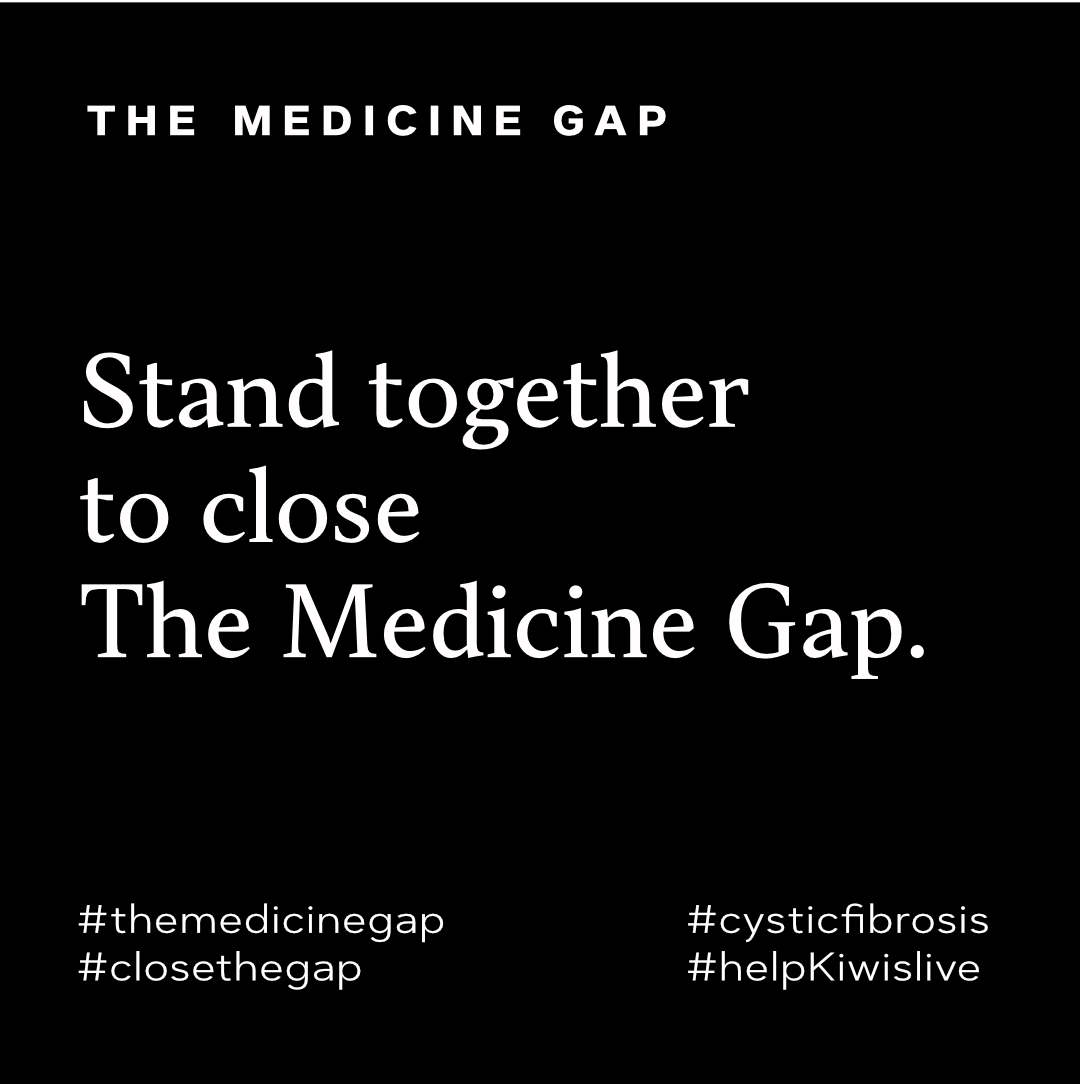
Two years ago, at the age of 36, I was lying in a hospital bed, unable to breathe, believing that my time was up. Cystic Fibrosis was taking hold of my lungs, and I was losing the battle. Fast forward to today, and I am a perfect example of what modern medicine can do to transform the lives of people suffering from Cystic Fibrosis.
This modern miracle, the drug Trikafta, funded in over 19 countries around the world, is not funded here in New Zealand. But why not?
I often rewind back to that moment where I was staring up at the hospital ceiling, watching helplessly as my lung function dropped to as low as 28%. I was unable to walk up the stairs or around the block without gasping for air. I had all but given up hope when my wife, KP, discovered an article stating that “Trikafta had become FDA approved” in the USA.
We knew that we had to access this medicine immediately. I was 36 and if I wanted to make 38, it was my only option. COVID cases were popping up around the world, but not yet in New Zealand, so we hopped on a plane in March 2020, and urgently flew to the USA to purchase Trikafta.
It took less than 24 hours for Trikafta to work its magic.
Within four days I no longer suffered from my lifetime persistent cough, and within 14 days I no longer displayed any symptoms of Cystic Fibrosis at all. Doctors crowded around when they saw my results, even checking if they were looking at the right scans and triple checking to ensure there wasn’t a mistake. For the first time in 36 years, my lungs were no longer clogged with infected sticky mucus. I was gaining weight and my lung function increased to 52%.


When I look back, there were so many things that I wanted and longed for in life. But in the end, nothing else mattered when my health began to fail. Staying alive became my only priority and we fought for it every day.
After experiencing the magic of Trikafta, I realised just how disillusioned I was about New Zealand’s medical system. I feel incredibly fortunate to live in a country with socialised health care, but this life-saving treatment is funded in 19 countries around the world, and yet is out of reach for New Zealanders with Cystic Fibrosis. In terms of access to modern medicines, I also learned that New Zealand ranks last of all OECD countries. Last.
My privilege is not lost on me. I can purchase an expensive drug like Trikafta and that simply isn’t a financial option for most. Every year our Cystic Fibrosis community dwindles in number. People are dying waiting for our Government to fund Trikafta.

I had friends who died last year, waiting for Trikafta. Many of them were teenagers. These deaths would almost certainly have been avoidable if they had access to this miraculous life-saving treatment. If they lived in any of the 19 countries who fund Trikafta, they would likely still be alive.
Today, many of my CF friends are now contemplating moving to Europe or to Canada, just to gain access to this miracle drug. If New Zealand doesn’t fund Trikafta, KP and I will be forced to leave so I can live. Some have this option, many do not. Kiwis have become medical refugees. Is this really a world class system? Are we really wanting our young Kiwis to leave New Zealand, to leave their family, their friends, their job, their schools, so they can have access to modern medicine? Is health not a basic human right?
I sometimes imagine what it would have been like for my parents to learn, within the first few hours of my life, that I had Cystic Fibrosis. I imagine how fearful they would have been, hearing that 90% of CF sufferers do not make it to 40 years of age, and half don’t make it to 25, and all because of a genetic imperfection. These days, I imagine what it must be like for new Kiwi mums and dads who bring a child into the world only to find out that their baby has Cystic Fibrosis and although there is a treatment available, New Zealand doesn’t publicly fund it.
Let’s shift our viewpoint and debunk the perverse myth that we cannot afford to save the lives of these children. Let’s reimagine our healthcare system so that it becomes world class, instead of continuing down the path of chronically underfunding Pharmac, to the point that it can no longer fund modern medicines to treat New Zealanders.
Pharmac has been forced to create a system of lists. If Pharmac’s specialist clinicians recommend a medicine for funding, it won’t automatically be funded, even if it results in a significant cost saving to our health system. The medicine goes on an ‘Options for Investment’ list until either the Government provides Pharmac with additional funding, or until Pharmac makes cost savings elsewhere. Essentially this means the Government is indirectly deciding which drugs Pharmac can fund.
This list system would work if the Government provided the necessary funds, however, this is rarely the case. The medicine budget has not kept up with medical inflation, population growth or the increased costs of procuring medicines due to COVID. The Options for Investment list has ballooned over the years to the point that Pharmac has finally called out the Government and publicly stated that they need over $400m just to catch up, let alone fund more medicines in the future. Is this really a world class system? I am yet to hear or read from anyone other than the Government that Pharmac is envied around the world. I challenge this belief. New Zealand’s health outcomes are not “enviable”. They are outdated and are pushing more and more Kiwis towards crowdfunding platforms, emigration, and death. Is this really the system that we want?
Now, without an immediate budget increase, how can Pharmac ever fund new medicines? Will Pharmac simply add Trikafta to the “Options for Investment” list?
Technology and rapid advances in medical science have changed the way the world views public health. Upfront investing in health saves money in the long term. Since when is it not a good idea to invest now, and be rewarded in the future? I work in the finance sector. Our training encourages us to consider the long-term investment potential.

If we had access to Trikafta, we would reduce the need for multiple hospital visits every year, turning Cystic Fibrosis from a life-limiting disease to a manageable condition.
Instead of children dying in their teens, they would live full and healthy lives. It would reduce the need for surgeries, for hospital beds, for specialist appointments, and for antibiotics to treat numerous lung infections. Equally as important, it would improve the quality of life for Cystic Fibrosis sufferers, enabling us to seek employment and pay taxes. It would provide our partners, parents, and caregivers an opportunity to also live their lives, without the constant fear and worry that we may stop breathing in the night.
Our mental health would improve and we could finally live with freedom. The restored energy and good health would mean people with Cystic Fibrosis could use their skills and fighting spirit to contribute to society in so many different ways. They too could be doctors, nurses, teachers, politicians, farmers, tradies, hairdressers or business leaders. It would enable us to live.
Pharmac needs to be fundamentally reimagined so that it serves the people and prioritises health outcomes, rather than focus on short term cost savings. We need to fund Pharmac properly to enable it to be able to purchase the medicines it believes it should fund.
We need the Government to stop preventing Pharmac from doing its job. The ‘Options for Investment’ list will continue to grow every year if we keep going as we are. How can Pharmac ever get ahead if it’s not properly funded?
I have had first-hand experience. Two years ago, I had regular hospitalisations, weeks at a time, I had monthly specialist appointments, hundreds of dollars of medications per day, regular medical scans, frequent time off work, and a death sentence (and I was considered to be in relative good health). Now that I am taking Trikafta, I am no longer placing this huge financial strain on the taxpayer-funded health system. It has almost completely vanished. I am out of the hospital system. I no longer need a lung transplant. I can work, employ people, and pay taxes. My wife will also continue working and paying taxes. Without Trikafta, she would eventually have become my full-time caregiver and we would both be on benefits. We are giving back to the Cystic Fibrosis community, we volunteer, and I am finally living life to the full. You achieve these long-term health outcomes when you invest in modern medicines.

In May this year, a petition to double Pharmac’s budget was signed by more than 100,000 New Zealanders. That is one in 50 Kiwis. It was one of the largest petitions ever presented to Parliament, and it was ignored by the Government. Why?
I know that if I left New Zealand and moved to any number of countries I would gain better medicine access and have a better health outcome. But this won’t fix the problem. We, as New Zealanders, need to unite, stand tall, raise our voices, and demand change.
If the Government doubled Pharmac’s budget, New Zealand’s health outcomes would improve dramatically – outcomes that would stretch far beyond the Cystic Fibrosis community. Change would save lives.
It is clear that Pharmac is chronically underfunded. The world of medicine has changed dramatically, and it is time that we recognised that medical solutions are not confined to antibiotics and pain killers. New Zealand needs a modern system that invests in the health of its people, and acknowledges that the days of “bare minimums” are behind us.


Show your support.
Please share Ed’s perspective story.
New Zealand needs access now to modern medicines to treat Cystic Fibrosis.


Other Voices
Let’s close the Gap
Get Involved1.
REFORM
PHARMAC
Achieve a measurable, political commitment to reform Pharmac and create a fit-for-purpose drug-buying agency that supports and enables greatly improved access to modern medicines – and ensure a direct line of political accountability.
2.
OVERHAUL THE FUNDING
METHODOLOGY
Introduce a globally accepted modern, cost-benefit analysis for medicines and medical devices which looks at the ‘value’ of a medicine, and considers the financial, economic, and social impact of untreated disease on our society.
3.
COMMIT TO AN OUTCOMES-BASED MEDICAL STRATEGY
Develop a Medicines Strategy to guide the decision-making process, create measurable targets to reduce Pharmac’s waiting list, and detail how the agency will respond to rapid developments in modern medicine to improve health outcomes for New Zealanders.